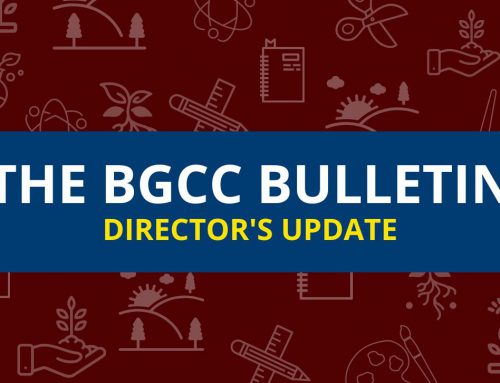HOWDY FAMILIES AND FRIENDS!
I sure miss the hustle and bustle of a busy children’s center. I miss the hugs and sound of laughter most. I want to thank our families, teachers, and administration for being so amazing during this time. You have been so kind and understanding with the many changes, and everyone keeps adapting so well! We have had to rethink how we teach.
Thank you for allowing your child’s teacher grace while adapting to teaching young children from afar. I have seen many creative ways to keep young children actively engaged and feel as though they are still part of the classroom community. We hope you have enjoyed our new website page as well as the daily activities and/or Zoom meetings for your child. Thank you for your positive comments!
We are happy our efforts are not only educational, but allow you to get your work done from home. We will continue to provide the best education for our youngest Aggies! We feel we have put together a fun newsletter with activities you can do at home. Continue to check in to our website page as it gets updated daily!
Thank you for your continued patience as we navigate this ever-changing world. Continue to check your email regularly. This is how we will update you with the latest updates and decisions.
April is National Garden Month
What a great time of year for gardening! Many of the classrooms were able to begin their classroom gardens already. Here are some great activities you can do at home that involve gardening. Check out the links for instructions for how to grow seedlings from an egg carton and how to create a fairy garden at home. This month’s parenting article focuses on how gardening with your children affects your child’s brain, body and soul.
- Stop and smell the roses
- Plant something
- Decorate your garden
April is National Poetry Month
Poetry and rhymes are beneficial to young children. According to William Woodsworth, poetry is, ‘the spontaneous overflow of powerful feelings.’ Poetry reads differently than sentences and should be read out loud to children. Babies respond to rhythm patterns and rhymes from a very early age.
As children get older, they understand the meaning of the words and as their vocabulary increases they are able to explore non rhyming poems. Attention span increases by the use of music or rhyme. Poetry aids in literacy. Through poetry, children learn about rhyming and alliteration. Poetry introduces new vocabulary, and helps children understand their own emotions. Poetry allows for creativity, movement, action, and mathematics.
Poetry makes it easier for ELLs to remember the words of a rhyme rather than a sentence. Limited English may find they can express something through a poem simply because they can forget about structures and use the vocabulary they have.
Finger plays and nursery rhymes are types of poems. Here are a few options to try at home:
- Baa Baa Black Sheep
- Old Mac Donald had a Farm
- Pat-A-Cake
- Mary Had a Little Lamb
Watts, A. (2016). Exploring poetry with young children : Sharing and creating poems in the early years. Retrieved from https://ebookcentral.proquest.com


